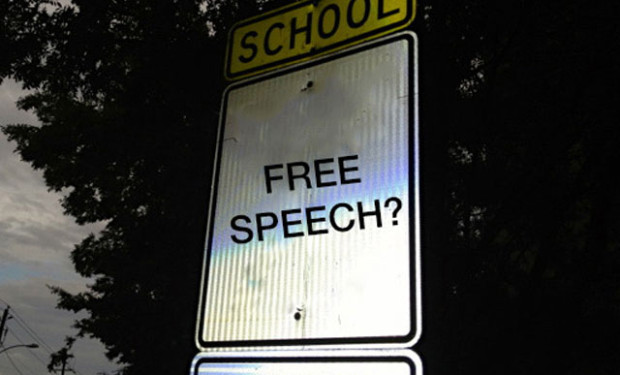Fifth-Graders Have Free Speech Rights, Too!
Until recently, most free speech cases concerning students have been at the middle school level and above. While courts have made it clear that students do not shed their rights at the schoolhouse gate, courts have also made it clear that an elementary school student does not necessarily share the same rights as a middle school or high school student. Defining free speech rights of elementary students can prove daunting, but many courts favor the conclusion that viewpoint discrimination against religious speech in elementary school is unconstitutional.
Fifth-grade student, K.A., would agree.
K.A., as the court papers refer to, was in fifth-grade when she attempted to hand out invitations to a children’s Christmas party hosted by her church. Her father sued after her Pennsylvania school, Barrett Elementary Center, did not allow her to give out these invitations. On March 12, 2013, the United States Court of Appeals for the Third Circuit ruled that school officials violated the girl’s right to free speech when they told her the invitations promising fun activities and games at the church event violated district policy.
The case began two years ago when K.A. was simply handing out the invitations “because she wanted to share her faith with classmates,” court papers say. Her teacher immediately stopped her and said she needed permission from the principal. When K.A.’s father, Michael Ayers, sought the principal’s approval, he was told the district superintendent had not approved the invitations. The principal said the invitations could not be handed out based on the district’s policy requiring permission to distribute literature from outside the school. K.A.’s father then filed suit, arguing the constitutionality of the district’s policy.
In defense of its policy, the school district argued before the court that the district was not concerned with the religious message being conveyed by the invitations, but rather, safety issues that could possibly result from students’ parents believing the invitations were for a school-sanctioned event.
According to the “Morning Call”, a Philadelphia newspaper publication, “U.S. District Judge Richard Caputo rejected that argument, noting that the superintendent hadn’t done any research that would lead him to believe the party was unsafe. He also focused on the superintendent’s testimony that students frequently take home fliers from outside organizations and that parents are on notice that the material was for ‘non-school-sponsored events.’”
Although the school district claimed it was not concerned with the religious message, the court struck down any potential argument regarding K.A.’s free speech. The school district failed to show how K.A. would cause a disruption by handing out the invitations. This standard was established in 1969 by Tinker v. Des Moines Independent School District, which held that a student’s free speech can be restricted if it causes a disruption in the school. A disruption was defined as any interference with the running of the school and the maintenance of discipline. Here, the court found that no such disruption occurred.
The school day was not interrupted, nor were any students forced or bullied into taking an invitation. The invitations, as far as free speech rights go, were essentially the same as invitations to a birthday party.
However, on appeal, the district argued that the standard used in Tinker with middle and high school students should not be the same standard applied to elementary school children. Many cases have addressed the issue, but only so far in saying that the younger the student, the more restrictive a school can be. There are few cases that thoroughly discuss what an elementary aged student can and cannot do in terms of free speech.
Rather than the more restrictive standard in Tinker, many courts have been enforcing a reasonableness approach for elementary school educators to restrict student speech. This approach is more subjective and allows school authorities to restrict certain speech based on the school’s special characteristics and particular learning environment.
But if there are no disruptions created by the student speech and if the school is able to maintain its orderly conduct, student speech cannot be restricted, even in an elementary school. Furthermore, many courts believe Supreme Court cases such as Tinker extend to religious free speech in elementary schools. “It is difficult to identify a constitutional justification for cabining the First Amendment protections . . . to older students,” the opinion states. “The fact that K.A. was only in the fifth-grade and the invitation originated from her church does not mandate a different approach.”
While certain free speech might cause more of a disruption in an elementary school than a high school, handing out invitations to a church-held event has the same, non-disruptive outcome at both age levels. “Public schools should encourage, not shut down, the free exchange of ideas,” said David Cortman, senior counsel for Alliance Defending Freedom (ADF), in representing the student. “Those ideas include a fifth-grader’s invitations to a religious event. The Third Circuit was correct in striking down the school district’s unconstitutional ban.”






